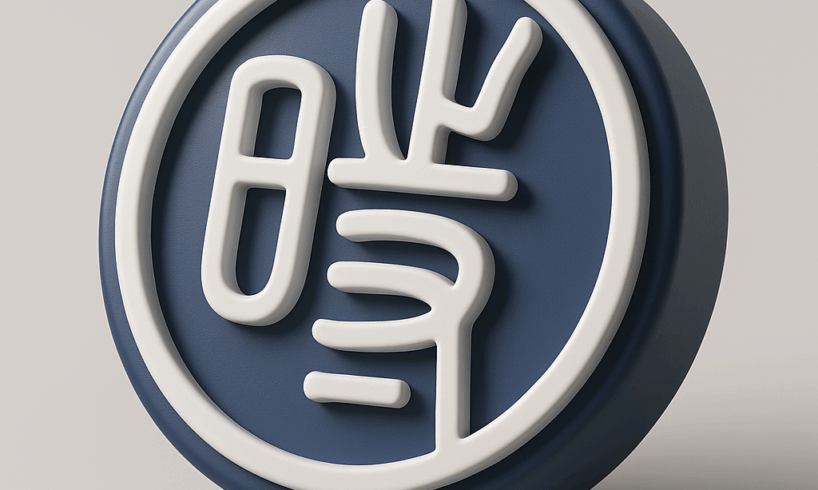
Wednesday is the tenth anniversary of the 709 (July 9) or “Black Friday” crackdown, a coordinated detention of more than 300 rights lawyers and activists in 2015 that was a key moment in the authoritarian shift in the early Xi Jinping era. At The Guardian, Amy Hawkins marked the occasion by talking to some of the crackdown’s targets:
The environment for human rights law has “steadily regressed, especially after the pandemic”, said Ren Quanniu, a disbarred human rights lawyer. “Right now, the rule of law in China – especially in terms of protecting human rights – has deteriorated to a point where it’s almost comparable to the Cultural Revolution era.” […]
[…] “It’s hard to say we achieved success – we can only say that the services we provided have made it more difficult for the authorities to persecute certain groups,” said Jiang Tianyong, a 54-year-old former human rights lawyer known for taking on cases involving religious and ethnic minorities who served two years in prison for “inciting subversion of state power”.
[…] Although some weiquan [rights defense] lawyers were also interested in political reform, most were focused on working within the existing Chinese system. The daily grind was not about promulgating foreign ideas, said Ren. It was about defending ordinary citizens “based on the existing laws of China itself, the laws of the Chinese Communist party’s own legal system. Yet even within that framework, the lawyers were not allowed to help.”
[…] Still, Xie [Yanyi, a lawyer detained in the 709 crackdown] remains hopeful for the future. “Although the year of the 709 incident marked a major regression in the rule of law in China … people, I believe, are gradually building resilience, maturing and becoming stronger.” [Source]
A group of eight civil society organizations held an online event to mark the anniversary despite the apparent last-minute deletion of the YouTube link they had distributed for its livestream. Also this week, 31 rights organizations issued a joint statement urging the U.N. to conduct a belated investigation into the crackdown, explaining its aftermath and consequences, and suggesting that the lack of firmer international response may have encouraged several of Beijing’s subsequent, larger-scale abuses:
Ten years after the Chinese government’s widespread crackdown on human rights lawyers, concerned governments and the United Nations should establish an independent, international investigation into Beijing’s persecution of civil society. No Chinese authorities have been held accountable for grave rights abuses against lawyers and human rights defenders, emboldening the government to commit increasingly widespread and systematic human rights violations. Those include possible crimes against humanity in the Uyghur region, according to the UN.
On July 9, 2015, authorities across China launched an unprecedented assault on human rights lawyers and rule of law activists, an incident now known as the “709” crackdown. Police seized over 300 lawyers and activists—most of the people undertaking such work. In the days and months that followed, many were forcibly disappeared and dozens arbitrarily detained. Authorities imprisoned ten lawyers and activists on baseless charges, sentencing them to between three to eight years in prison. Officials inflicted collective punishment on family members, including children, for their association with and advocacy for their loved ones.
The “709” crackdown marked a significant increase in Chinese President and Chinese Communist Party General Secretary Xi Jinping’s assault on independent civil society, and particularly towards the fledgling community of lawyers who sought to find redress for legal and social issues through the court system.
[…] Before the “709” crackdown, human rights lawyers across the country had advocated for redress for their clients and publicized violations of the law and fair trial rights. Lawyers sought to uphold human rights enshrined in international treaties voluntarily ratified by the Chinese government, and basic rights guaranteed in China’s Constitution and laws. Lawyers helped advance key rule of law reforms, including abolition of systems of arbitrary detention, such as “re-education through labor” and shuanggui, the Chinese Communist Party’s internal disciplinary regime. The lawyers also urged abolition of the hukou, or household registration, system.
Lawyers represented many groups persecuted by authorities, including human rights activists, Tibetans, Falun Gong practitioners, feminist and LGBT advocates, Christians, and victims of state corruption and public health crises such as the tainted baby milk scandal. Some lawyers had been lauded by authorities before facing arrest, like Gao Zhisheng, who in 2001 was named by the Ministry of Justice as one of the country’s ten top lawyers. Gao has been forcibly disappeared for nearly eight years after enduring years of state persecution.
[…] While some human rights lawyers courageously continue their work, the Chinese government’s “709” crackdown has severely reduced the pool of lawyers willing to challenge the state over its human rights abuses. And over the past decade, authorities have increasingly used key “709” tactics, including RSDL and surveillance and controls against human rights defenders and lawyers upon the completion of their arbitrary prison sentences.
[…] In the years since the “709” crackdown, Xi’s government has carried out possible crimes against humanity in the Uyghur region, dismantled fundamental freedoms in Hong Kong, shuttered schools teaching Tibetan language and culture while requiring students to attend state school, altered the Constitution to permit Xi Jinping to rule for life, and increased transnational repression targeting activists and diaspora outside China.
The resilience of human rights defenders across China despite a decade of worsening repression is grounded in the desire for the government to fulfil its obligations to uphold the rule of law and universal human rights, including those freely undertaken by joining numerous legally binding international human rights treaties. The UN Human Rights Council and concerned governments should heed the calls from within the country and take steps to hold the Chinese government accountable. [Source]
Human Rights Watch, one of the organizations behind the joint statement, also detailed the various reprisals against rights lawyers and their families in a separate post, and described the bleak climate left in the crackdown’s wake:
A decade after the crackdown, Chinese rights defense lawyers confront “more comprehensive and sophisticated” controls by the Ministry of Justice and the government-controlled lawyers’ associations, a lawyer interviewed said, and these authorities are adopting a “one-versus-one” strategy to monitor them:
As soon as you make a public post … on your [social media] account, they will call you right away. For a certain number of lawyers, the judicial authorities have even gone to the court to follow and observe the trial. This was not common before but has developed into a systematic strategy over the years.
Another rights defense lawyer interviewed said:
In the past, the suppression of human rights lawyers was very blatant … [lawyers] were arrested at any time and disappeared after being covered in black hoods. Now the means have become more covert and more rules-based. This is even more terrifying, because it is not easy for the outside world to see it, and it is even more difficult to criticize it.
[…] One lawyer familiar with this community said that even though one can no longer speak of an organized movement of rights defense lawyers, there are lawyers still willing to defend human rights independently:
Some lawyers choose not to speak out and focus on making big money, but there are still many who insist on fighting, although they have toned it down … I think there are some lawyers who are forced to turn to a semi-underground approach, such as lawyers who defend [practitioners of the persecuted religious group] Falun Gong and [underground] Christians. But no matter what, they still appear in court. [Source]
The European University Institute’s Qin Ma described the enduring activities and strategies of some of China’s remaining rights lawyers in an interview earlier this year for The Practice magazine from Harvard Law School’s Center on the Legal Profession:
I have documented at least seven types of strategies that reformist criminal defense lawyers use to operate in China.
First, they use social media to publicize their cases and gain public support, and in that way, indirectly influence the judiciary. […]
The second strategy is collective action, in which lawyers join forces to represent multiple defendants in a case. For instance, in some criminal cases, there might be 20 defendants and up to 40 lawyers working together. […]
The third strategy focuses on activating procedural rights. The lawyers file complaints about judicial officials who disobey the law or breach certain procedural rights. […] Unlike traditional defense lawyers, who often abandon procedural challenges when rejected by judges, reformist lawyers persist, repeatedly raising objections, and if denied, may publicize the dispute online to draw public attention.
The next four types of strategies are more radical. Some reformist lawyers may engage in performance art, write joint petitions, or stage sit-in protests, and in extreme cases, resort to hunger strikes to draw attention to their cases. These actions aim to highlight the misconduct of judicial officials, thereby shifting the narrative. Additionally, lawyers may apply for permits to hold protests, with the application itself serving as a bold act of defiance. [Source]





